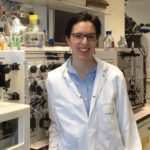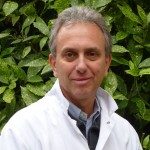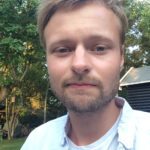About
General context :
Foamy viruses (FV) are the oldest retroviruses, described as largely nonpathogenic in their natural
animal hosts. Simian foamy viruses (SFVs) can be transmitted to humans, where they establish
persistent infection akin to the retroviruses that led to the emergence of two major human pathogens,
human immunodeficiency virus type 1 (HIV-1) and human T lymphotropic virus type 1 (HTLV-1). Such
cross-species transmission of SFV is ongoing in many parts of the world where humans have contact
with nonhuman primates (NHPs).
Aims of your research proposal :
Our first goal is to examine the consequences of SFV infection for human health. We recently performed
the first medical analysis of SFV-infected hunters and described associations between chronic SFV
infection, anemia and immune activation.
Envelope (Env) protein is the key surface protein that allows viral entry. We showed that Env is the main
target of the potent neutralizing antibodies in humans. We have identified individuals infected with two
SFV variant strains, which can be differentiated by their Env protein. Therefore, our second goal is to
investigate Env structure.
Brief scientific description of your research proposal :
This project will be carried out using blood samples obtained from high risk Central African populations
exposed to NHP. Importantly, one workpackage is dedicated to examining the medical consequences of
chronic SFV infection for human health, with a longitudinal medical follow-up. We also propose an in
depth characterization of SFV strains infecting humans.
We aim to gain fundamental knowledge on the Env from this poorly studied virus through the
determination of the structure of Env, information that is critical for understanding viral entry. This
structure will then guide to develop novel serological assays for coinfection diagnosis. Most importantly,
the structure of Env will allow us to build functional studies on neutralizing antibodies that might be the
key immune effectors preventing SFV spread in the human population.
The PTR program provides a perfect foundation for the successful execution of our project. We aim to
create novel synergies between teams with complementary areas of expertise. The four teams are
internationally recognized experts in SFV epidemiology and immunology, structural studies of viral
glycoproteins, medical virology, and pathogen identification. The four teams belong to three institutions
from the Institut Pasteur International Network, located in Paris, Yaoundé and Shanghaï.












